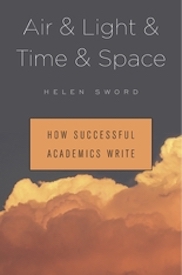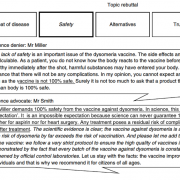How Academics Survive the Writing Grind: Some Anecdotal Advice
Words of Wisdom from Those Who Publish (and Do Not Perish)
By Helen Sword
A PhD student approached me after a writing workshop to recount his tale of woe. “I write these messy, incoherent first drafts,” he lamented. “They’re absolutely awful! Then I have to work on them for hours and hours to bash them into shape. It’s such a frustrating process, and so discouraging. My PhD adviser is a really good writer; she makes it all look so easy. I wish I were more like her.” I didn’t get a chance to interview the student’s supervisor; but if I had, I can guess what she might have told me. Probably something like this: “I write these messy, incoherent first drafts—they’re absolutely awful! Then I have to work on them for hours and hours to bash them into shape. Writing can be a hard and frustrating process, but for the most part, I really enjoy the challenge of honing and polishing my sentences until I get them just right.” Same story, different spin.
 Note – this article has a very useful set of suggestions and encouragements for writers, including “In science, sentences should be logical and unambiguous. You’re not writing literature, where ambiguity might be a good thing. There you might want two possible meanings on purpose. But in a scientific paper, you don’t want that. You want a very clear meaning. (Wim Vanderbauwhede, Computing Science, University of Glasgow)”
Note – this article has a very useful set of suggestions and encouragements for writers, including “In science, sentences should be logical and unambiguous. You’re not writing literature, where ambiguity might be a good thing. There you might want two possible meanings on purpose. But in a scientific paper, you don’t want that. You want a very clear meaning. (Wim Vanderbauwhede, Computing Science, University of Glasgow)”
It is an excerpt from a new book, Air and Light and Space and Time How Successful Academics Write, by Helen Sword, courtesy Harvard University Press. Copyright 2017, Helen Sword.









